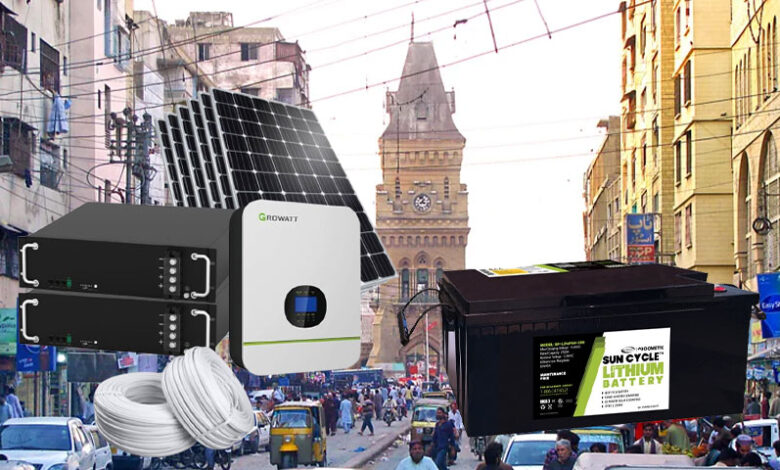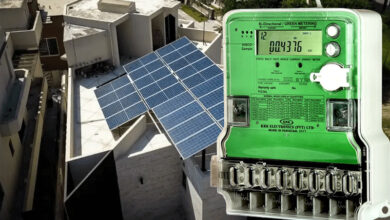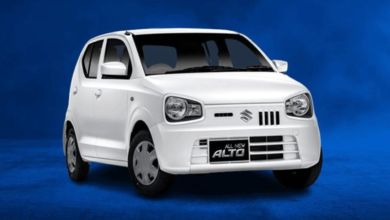Solar Power System Adoption on the Rise Amid Affordable Battery Options in Pakistan

The increasing need for solar power systems in Pakistan has become more evident, especially with the recent drop in the prices of solar panels. Many individuals who previously refrained from installing solar systems due to the high costs of solar panels are now considering the option due to more affordable prices. However, despite this price reduction, some are still hesitant due to the recent net metering policy introduced by the government, which has impacted the solar market.
As the summer season approaches, bringing with it high electricity bills, many prospective solar system buyers are often confused about choosing between Lithium or Tubular batteries for their solar systems. Understanding the difference between these two types of batteries is crucial for those looking to make an informed decision.
Engineer Noor Badshah explained that there are several key differences between Lithium and Tubular batteries, which affect their performance and effectiveness in solar systems. He stated, “Lithium batteries have a longer lifespan, ranging from 10 to 15 years, and they have the ability to charge and discharge rapidly.” He further added that Lithium batteries are lighter, require less maintenance, and perform well under both high and low temperatures. While their initial cost is higher, they can prove to be more economical in the long run.
On the other hand, Tubular batteries have a lifespan of about 5 to 8 years. They charge and discharge at a slower rate and require more maintenance, such as monitoring the water levels. These batteries are heavier and more affordable but perform better in higher temperatures.
For those with a higher budget and looking for low-maintenance, long-lasting batteries, Lithium batteries are an excellent choice. However, if budget is a concern and regular maintenance is not an issue, Tubular batteries can be more suitable.
Engineer Hamza Rafi, on the capacity of Lithium batteries, mentioned that their capacity varies based on the type and size, depending on the energy requirements of the solar system. He explained that small solar systems typically have Lithium batteries with capacities ranging from 2.5 kWh to 10 kWh, while larger systems may require batteries with capacities of 20 kWh or more.
“The choice of battery depends on your solar system’s daily energy consumption and the amount of battery power required,” said Hamza. For instance, if a household needs 5 kWh of energy daily, a 5 kWh Lithium battery would suffice to power the system for a day. He further explained that a 5 kWh battery can power devices like a 75-watt fan for 24 hours or a 1000-watt air conditioner for approximately 5 hours.
Regarding the pricing of Lithium batteries, Engineer Noor Badshah shared that the cost of a 5 kWh Lithium battery varies by brand. For instance, a Narada 5 kWh battery with a 3-year warranty and a 10-year lifespan costs around 260,000 PKR, while a Shoeton 5 kWh battery with a 3-year warranty and 10 years of life is priced at 240,000 PKR. A PylonTech 5 kWh battery with a 5-year warranty and 15 years of life costs around 290,000 PKR, while a Netrox 5 kWh battery with a 5-year warranty and 15 years of life is priced at 385,000 PKR.
Experts agree that all batteries are good, but differences in brand and lifespan exist. Older acid-based batteries have significantly reduced in price, but experts like Hamza Rafi suggest that these are no longer widely used due to their shorter lifespan and lower efficiency compared to Lithium batteries.





